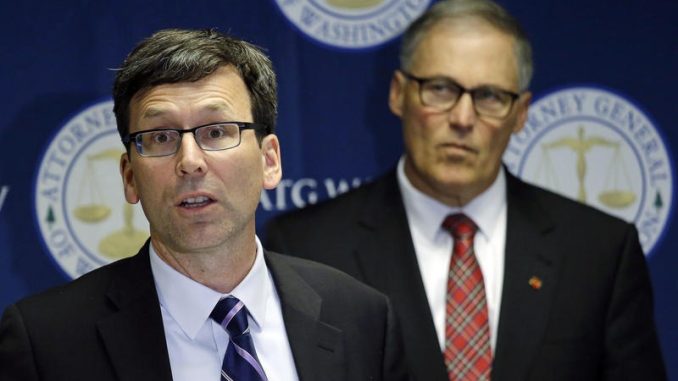
The decision permits Seattle to prosecute Monsanto for alleged public nuisances in a September trial.
CN) — Monsanto’s attempt to have Seattle drop its case seeking hundreds of millions of dollars in damages to lessen the impact of polychlorinated biphenyl poisoning on the Duwamish River, the city’s stormwater system, and its drainage system was rejected by a federal judge on Friday.
The city claimed that Monsanto, now owned by Bayer AG, had created a public nuisance by producing, marketing, and distributing toxic chemicals that had contaminated Seattle’s drainage lines and the lower river. U.S. District Judge Richard Jones denied Monsanto’s motion for summary judgment.
The parties have submitted 58 expert reports, exchanged more than 5 million pages of document discovery, and taken 59 depositions, according to Jones. Expert witness and admissible evidence are available to establish a factual dispute over each of the elements in the city’s public nuisance claim. When considering the facts in the city’s best interest, the court must reject the defendants’ request.
The decision permits Seattle to proceed with its September trial date against Monsanto.
One of the reasons made by Monsanto in its attempt to legally refute Seattle’s allegation was that the city could not provide evidence that the corporation produced and distributed PCBs with the intention of causing the alleged public nuisance.
produced and distributed PCBs with the goal of causing the claimed annoyance to the public.
According to Washington law, if an individual or organization knows that the outcome of their activity is certain, or virtually certain, and they still proceed, the law treats them as though they had actually intended to generate the result. The judge claimed that this was an excessively strict threshold.
“Indeed, the city provides evidence that Monsanto knew for a fact that widespread use of the PCBs it manufactured was contaminating the environment,” Jones stated. “Even with the knowledge of the pollution issue related to certain PCB products, Monsanto instructed its salespeople to avoid returns from its customers, noting ‘we cannot afford to lose one dollar of business.'”
Monsanto claimed that Seattle’s claims were covered by the company’s 2020 $95 million deal with Washington, but Jones rejected that claim last year. In that ruling, the judge upheld the suggestions made by U.S. Magistrate Judge Michelle Peterson, who concluded that neither the state lawsuit nor the settlement relieved Monsanto of its public nuisance claims made by Seattle.
Peterson drew attention to unclear language in the state’s settlement deal with Monsanto about the agency’s release. Despite Monsanto’s contention that King County and Seattle were covered by this wording, the city claimed that county and state agencies are distinct organizations.
Even though it has been illegal to use or produce PCBs since 1979, their negative impacts persist, frequently as a result of poorly maintained waste systems and landfills where the chemicals leak.
2016 saw the filing of the case by Seattle, which claimed that Monsanto had been hiding information about PCBs’ possible hazards for decades. As PCBs seeped into Seattle’s wastewater and stormwater, they emerged as the most common contaminant released into the Duwamish River, which flows directly through the city.
Get the most recent information on important lawsuits, ongoing trials, hot cases, and court decisions in courtrooms across the United States and the world by subscribing to the weekly newsletter Closing Arguments.

Leave a Reply